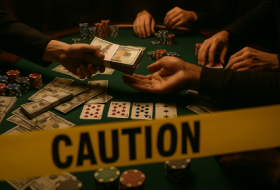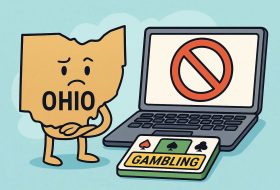
Play’n GO, a prominent name in the online casino game development industry, is under scrutiny following reports that its popular titles are accessible on unlicensed gambling platforms targeting players in regulated markets such as the Netherlands and Germany.
This revelation stands in contrast to the company’s public commitment to operating exclusively within regulated markets.
Public Commitment to Regulation
In early May, Play’n GO’s CEO, Johan Törnqvist, made a definitive statement asserting the company’s refusal to supply games to sweepstakes casinos, citing their operation outside regulated frameworks. He emphasized the company’s absolute commitment to regulated markets, a stance that was further reinforced by Shawn Fluharty, Head of Government Affairs, who warned of potential long-term repercussions for entities collaborating with unregulated operators.
“Anyone doing business with sweepstakes casinos today will find it very difficult to do business in a future regulated market,” Fluharty said at the time of Törnqvist’s statement.
Games Found on Unlicensed Platforms
Contradicting its public declarations, Play’n GO’s games, including well-known titles like “Book of Dead,” have been discovered on unlicensed platforms such as FoxyGold.com and Goldspin. These sites, operating under Curaçao licenses, are accessible to players in the Netherlands and Germany, despite lacking authorization in these jurisdictions.
In response, Fluharty acknowledged the presence of Play’n GO games on these platforms but minimized the impact, attributing it to minimal traffic and potential VPN usage. He indicated that these sites might be clients of larger resellers and suggested that regulators should be notified to take appropriate action if violations are confirmed.
“If there is suspicion that they are also providing games to regulated jurisdictions without the proper licenses in place, then the relevant regulators should be notified so they may take appropriate action,” Fluharty said.
Industry Implications
The situation highlights the complexities of game distribution in the online gambling industry, where developers often rely on third-party resellers. While Play’n GO asserts its commitment to regulated markets, the presence of its games on unlicensed platforms raises questions about the effectiveness of its distribution controls and the challenges of enforcing compliance in a global digital landscape.
As the industry continues to navigate the balance between expansion and regulation, Play’n GO’s experience underscores the importance of stringent oversight and transparency in maintaining the integrity of regulated gaming markets.
Play’n OH, NO!
The controversy puts Play’n GO in an especially awkward position, given its hard stance against sweepstakes casinos. While that position is debatable given the legality of sweepstakes models under U.S. promotional sweepstakes law, the company was clear in framing its choice as a matter of integrity.
But now we know Play’n GO’s games are available on black market real-money sites targeting players in strictly regulated countries like Germany and the Netherlands. Unlike sweepstakes casinos, these sites offer no legal protections, no transparency, and no oversight. The games on these platforms represent real financial risk, much more so than you’d see at low-stakes social casinos.
In effect, Play’n GO has taken a hard public stance against free-to-play, legally gray platforms while apparently turning a blind eye to their content being live on gambling sites that operate without proper licensing. That contradiction makes the company’s moral grandstanding on sweepstakes casinos ring hollow. If Play’n GO is truly committed to regulated markets, critics argue, it should apply that standard consistently—and not selectively based on optics or convenience.





